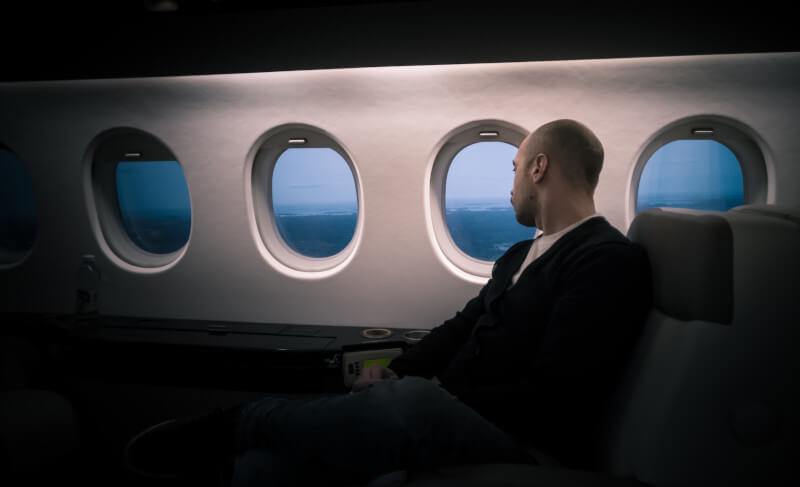In a realm where opulence knows no limits, a select group of individuals possesses a truly exclusive privilege—a rare, jet-black American Express credit card. You might have heard of Chinese millionaire Liu Yiqian, who, in a dazzling display of financial prowess, charged an astonishing $170 million on his credit card, setting a world record according to our research. However, have you ever wondered whether there are alternative means for the mega-rich to acquire their multi-million dollar possessions, aside from relying on credit cards? Surprisingly, in many cases, the answer is yes. Join us as we embark on an illuminating journey into the captivating world of how the ultra-wealthy acquire goods and services valued in the millions and millions of dollars.
For most of us, making a substantial purchase is a straightforward affair, whether it’s a car, a house, or a piece of fine art. The same basic forms of payment apply to the ultra-rich as well. Take, for instance, Sotheby’s auction houses, renowned for their illustrious art auctions. They explicitly state that buyers can settle their bills “by bank transfer, cheque, or cash (subject to any restrictions and legal limits).” Similarly, the iconic luxury retailer Harrods offers multiple payment options, ensuring that the wealthiest patrons have a plethora of ways to indulge their lavish tastes.
While the affluent often rely on their credit cards for everyday transactions, these cards are far from ordinary. They come with a plethora of perks designed to cater to the unique needs and desires of the wealthy elite. However, these elite cards aren’t available to the general public; they are issued by invitation only to individuals who have reached a certain echelon of wealth. The most renowned among these exclusive cards is the Black American Express card, which is often mentioned in the same breath as opulence itself. But beyond the Black card, there exists a constellation of other exclusive cards, each with its distinct allure and privileges.
With these elite cards, you can purchase virtually anything you desire, regardless of its astronomical price, and gain access to an array of concierge services that can turn your wildest wishes into reality. From securing tickets to a sold-out performance at a prestigious theater to fulfilling the most unique and eccentric requests, these credit cards redefine what it means to have purchasing power.
To illustrate the extent of these services, consider the intriguing tale of a Centurion cardholder who yearned for a handful of sand from the Dead Sea to be delivered to their doorstep in London. American Express went above and beyond to fulfill this unusual request, dispatching an international courier on a motorcycle to the Dead Sea shoreline to collect the sand. The sand was then delivered to the customer, who intended to use it for a school project. This remarkable story showcases the card’s ability to turn even the most unique requests into reality.
In another instance, a woman with aspirations of appearing on a soap opera turned to her connections at Amex for assistance. Thanks to her Centurion card, she secured an audition for a role in just such a show, demonstrating the card’s power to make dreams come true. Yet another intriguing case involves a customer who expressed a desire to locate the horse that Kevin Costner rode in the film “Dances with Wolves.” Not only did Amex track down the horse, but they also arranged for its purchase and transportation to the customer’s location in Europe, demonstrating the lengths to which these elite credit cards can go to fulfill unique requests.
One common misconception among the general public is that credit cards, even those reserved for the wealthy elite, have no maximum spending limit. While it’s true that these cards don’t come with pre-set spending caps, their limits are determined by the cardholder’s wealth and their relationship with the issuing bank. In essence, the limit is virtually boundless, as it would exceed the value of practically everything on Earth. However, even the most affluent individuals would likely raise eyebrows at attempting to charge a billion dollars to their card without prior approval.
Nevertheless, it’s crucial to understand that billionaires and similarly affluent individuals might opt for alternatives to credit cards when making multi-million dollar purchases. They could just as easily use a debit card or personal check. Similar to credit cards, there are no strict caps on the amount of money that can be spent in a single transaction using these methods. However, in contrast to credit card purchases, the funds must be readily available in the account at the time of the transaction, adding an additional layer of financial responsibility.
In the realm of the ultra-wealthy, the means of acquiring goods and services worth millions of dollars are as diverse as the individuals themselves. While credit cards with seemingly limitless spending capabilities are certainly a part of the equation, these affluent individuals also have the option to utilize traditional payment methods such as bank transfers, checks, or debit cards. The true luxury for the ultra-rich lies not just in their purchasing power but in their ability to turn extravagant desires into reality with the swipe of a card or the stroke of a pen. In this world of opulence, there are no bounds and the boundaries between what’s possible and what’s extravagant blur into a tapestry of extravagance that continues to evolve.
The Art of Acquisition
Acquiring goods and services in the million-dollar range is an art form in itself, and the ultra-wealthy have mastered this art with finesse. The process often involves an intricate dance between financial institutions, auction houses, and high-end retailers. Whether it’s acquiring a priceless work of art, a rare vintage car, or a luxurious mansion, these transactions are anything but ordinary.
For art connoisseurs among the elite, acquiring a masterpiece is a pursuit that requires strategic planning and expertise. Auction houses like Sotheby’s and Christie’s serve as battlegrounds where bidding wars unfold. The ultra-wealthy enlist the services of art experts and advisors who meticulously research and evaluate potential acquisitions. When the moment arrives to make a bid, the elite have various payment options at their disposal. While credit cards can certainly be used for securing art, wire transfers are a common choice for high-value purchases. This method allows for swift and secure transactions, ensuring that coveted pieces of art change hands seamlessly.
Collecting Vintage Cars
For those with a passion for classic cars, the acquisition of vintage automobiles is a labor of love. Ultra-wealthy collectors attend prestigious car auctions such as the Pebble Beach Concours d’Elegance and the Monterey Car Week, where rare and iconic vehicles are up for grabs. When it comes to paying for these automotive gems, the options are diverse. While credit cards may be suitable for smaller transactions, the acquisition of a multi-million-dollar vintage car typically involves bank transfers or cashier’s checks. These methods provide the necessary financial assurance to both the buyer and the seller.
Luxury Real Estate
Luxurious mansions and estates are a coveted asset among the ultra-wealthy. These opulent residences offer not only a lavish lifestyle but also a sound investment opportunity. When acquiring luxury real estate, the process is meticulously orchestrated. Financing such acquisitions can be a complex endeavor. While some choose to leverage their extensive credit lines, others prefer traditional mortgage financing. In some cases, all-cash transactions are executed, demonstrating the immense financial power wielded by the ultra-rich.
Many ultra-wealthy individuals lead international lifestyles, and their acquisitions span the globe. In such cases, the role of private banks becomes instrumental. These financial institutions specialize in serving the unique needs of high-net-worth clients, offering a range of services tailored to their requirements. Private banks facilitate cross-border transactions, providing expert guidance on currency exchange, tax considerations, and regulatory compliance. They work closely with their clients to ensure that multi-million dollar acquisitions proceed smoothly, regardless of the geographical locations involved.
In the world of ultra-wealthy transactions, negotiation is an art form in itself. Whether haggling over the price of a luxury yacht or finalizing the terms of a real estate deal, the elite employs skilled negotiators who possess a deep understanding of the market and the unique intricacies of high-value transactions. Negotiations extend beyond price to encompass warranties, delivery timelines, and even customization options. The ability to secure favorable terms is a testament to the resourcefulness and savvy of the ultra-rich.
Privacy and discretion are paramount in the world of ultra-wealthy transactions. The affluent value their anonymity and seek to shield their financial affairs from public scrutiny. This desire for secrecy extends to the acquisition process itself. In many cases, high-value transactions are conducted through the use of shell companies or trusts, adding a layer of confidentiality. The identities of the buyers may remain undisclosed, allowing them to enjoy their acquisitions in relative obscurity.
For many ultra-wealthy individuals, acquisitions are not solely about personal enjoyment; they are also a means of leaving a lasting legacy. Art collections are often donated to museums, vintage cars find their way into private museums, and luxurious estates are transformed into foundations or centers for philanthropic endeavors. These acts of generosity not only preserve the cultural and historical significance of these acquisitions but also serve as a testament to the philanthropic spirit of the ultra-rich.
The world of ultra-wealthy transactions is a captivating realm where opulence knows no bounds. Whether through exclusive credit cards, traditional payment methods, or intricate financial strategies, the ultra-wealthy acquire goods and services worth millions with finesse and flair.




